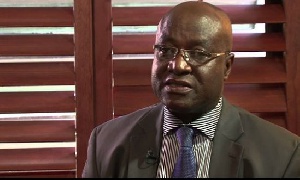The Minority Leader in Parliament, Osei Kyei Mensah-Bonsu, has appealed to the members of Kumasi Metropolitan Assembly (KMA) to reach a compromise on who is elected to preside over the Assembly.
For the fifth consecutive time Tuesday, the members of the assembly failed to elect a presiding member as the only contender, Nana Kofi Senya, failed to get two-thirds majority in Tuesday’s referendum to become the presiding Member.
This was after his key contender, Adumhene Baffour Adjei Kesse, had prior to Tuesday’s election served notice the Electoral Commission of his decision to step down “in the interest of the development of Kumasi”.
Only 62 assembly members voted YES for his bid while 65 of them voted NO with one rejected ballot. This means he failed to secure the two-thirds majority required to win the presiding membership. But commenting on the issue, Mr Mensah-Bonsu said “the KMA issue is worrying” and blamed it on political influence within the Assembly.
He has asked the members of the Assembly to reach a compromise to elect someone to preside over the assembly. He suggested that to ensure transparency in the governance system, then the presiding member must be from the New Patriotic Party because the Chief Executive of the Assembly is by all means a National Democratic Congress person.
Mr Mensah-Bonsu said the absence of a presiding member was affecting development in the Kumasi metropolis, noting “time is far spent and it is destroying Kumasi”.
Scrap ‘gov’t appointees’ Meanwhile, Mr Mensah-Bonsu has called for the scrap of the government appointees in various district, municipal and metropolitan assemblies because their appointments are based on political affiliations.
He observed that those appointees, who he described as “yee yee people,” do not contribute meaningfully to the assembly He also underscored the need for district assembly elections to be made partisan so that political parties can present good and quality people who will debate issues to bring development to their various assemblies to be elected.
He noted the current situation where government appoints 30 per cent of people to the assemblies are not helping. “Let us not deceive ourselves. Assembly members are partisan”, he added.
Criteria for appointments Alternatively, Mr Mensah-Bonsu suggested that appointment into the various assemblies should follow a set down criteria.
“There should be criteria for selection of the appointees. It can be a chief, nurses, teachers, and others but not any member of the ruling party as we see today,” he suggested.
General News of Wednesday, 28 September 2016
Source: 3news.com

















